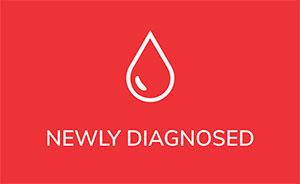As we well know, CLL is the most common type of leukemia in Western countries, with an incidence of approximately 5 to 6 per 100,000 per year.
Over the past decade, the flood of new treatments for chronic lymphocytic leukemia/small lymphocytic leukemia has markedly improved survival. As a result, fewer and fewer are dying of CLL / SLL itself. The projected 5-year survival of patients with CLL is a promising 86%.
However, with the longer lives and the tragic impact of the COVID-19 pandemic, deaths from infections have become a preeminent concern for the CLL / SLL community. Before the rapid spread of SARS-CoV-2, infections were already the leading cause of morbidity and mortality in patients with CLL.
A few years ago, many patients were either unaware or unconcerned about their infection risk and took few precautions. COVID-19 changed all that.
Suddenly understanding what it means to be immunocompromised and how to mitigate the risk best became important.
I interviewed Dr. Shahzad Mustafa, a Professor of Medicine and immunologist, particularly interested in those with secondary immunodeficiencies such as CLL / SLL patients. We discussed the nature of the immune deficiencies associated with CLL / SLL and how one might remediate a significant part of the problem.
Takeaways:
- CLL is a cancer of the immune system. Specifically of the B lymphocytes or B-cells that make antibodies to fight infections.
- The quantity and quality of the antibodies made by those with CLL / SLL patients are often low.
- Measuring the levels of antibodies in the blood is “only the tip of the iceberg” in understanding the functional capacity of the immune system.
- Measuring antibody response to vaccines is a better measurement but only assesses one aspect of immunity. We already know that response to many vaccines such as pneumonia and COVID are impaired in CLL, implying diminished protective benefits.
- Besides low immunoglobulins, other risk factors influencing the development of infection in CLL / SLL include disease duration, advanced disease, defects in complement activation (a component of the immune response), splenectomy (removal of the spleen), T-cell defects (the primary cell type that comprises “cellular immunity”), and low neutrophils (a different kind of white blood cell).
- The risk of infection is also influenced by the therapies used, with chemotherapy being the worst.
- Overall, the infection risk for patients with CLL undergoing treatment is about 3-fold higher (29.0 major infections per 100 patient-years) than for untreated patients (8.5 major infections per 100 patient-years), with significant infections defined as requiring hospital admission or IV anti-infective therapy.
- Prophylaxis with antibiotics and antivirals can be helpful for those with certain types of serious recurrent infections.
- Ineffective and low levels of antibodies can be replaced with immunoglobulin.
- Immunoglobulin is a pooled blood product made from collecting one specific class of antibody, IGG, from the blood of thousands of donors for each dose. As a result, it is a very limited resource.
- Traditionally immunoglobulin has been given as an intravenous infusion.
- More recently, subcutaneous options, a self-administrated method done at home similar to using an insulin pump, have been increasingly used.
- This option may be more convenient, with fewer side effects, and provides a more steady state of immunoglobulins.
Conclusions:
The COVID-19 pandemic has forced us to recognize and deal with our impaired immunity. Now let’s see if there are ways to improve it. Unfortunately, improving our impaired immunity has not been addressed in clinical trials for too long. Let’s hope there will be studies soon to help those with CLL / SLL feel safer in the world. CLL Society is offering grants to scientists to research what can be done.
You can view my interview with Dr. Mustafa, where you will learn more about the immune system and how it can be tested in CLL / SLL patients, below.
Stay strong. We are all in this together.
Brian
Brian Koffman MDCM (retired) MS Ed (he, him, his)
Co-Founder, Executive VP, and Chief Medical Officer
CLL Society, Inc.

















